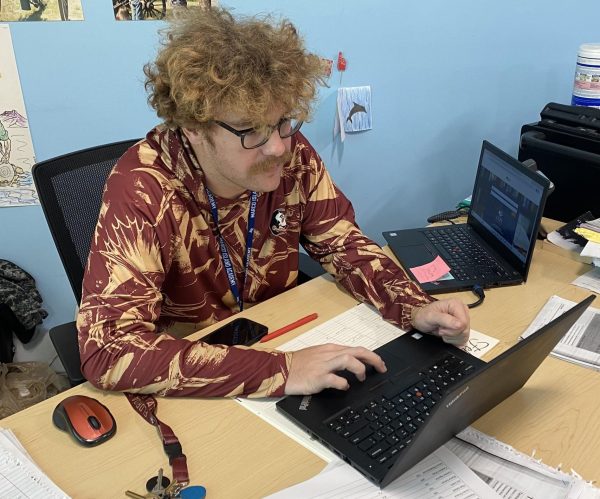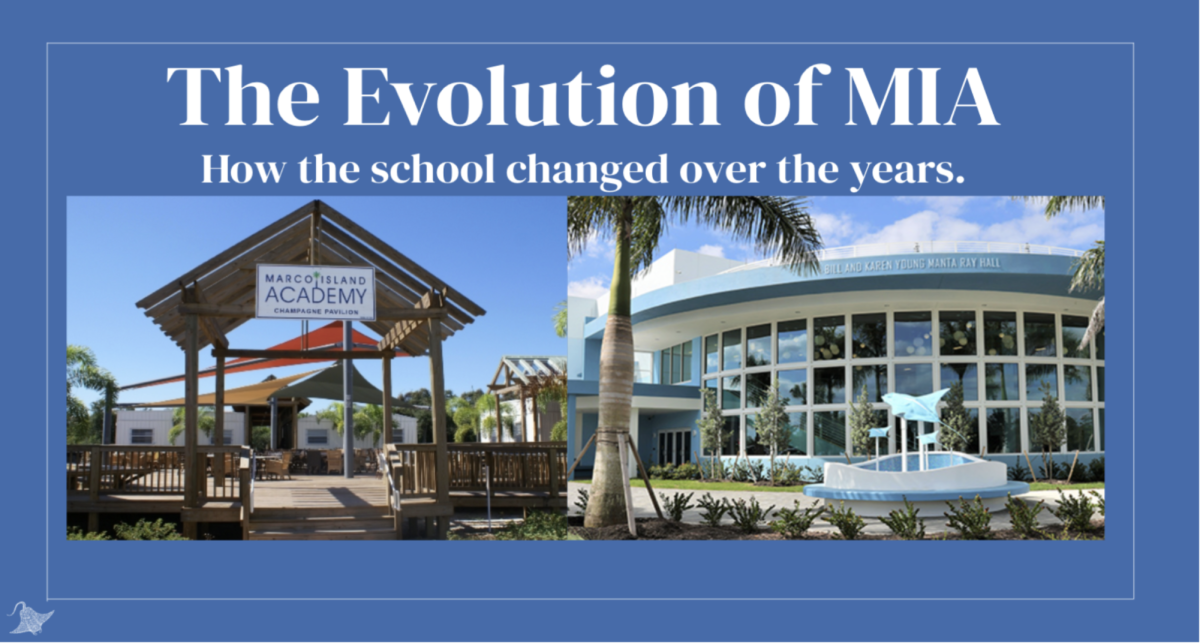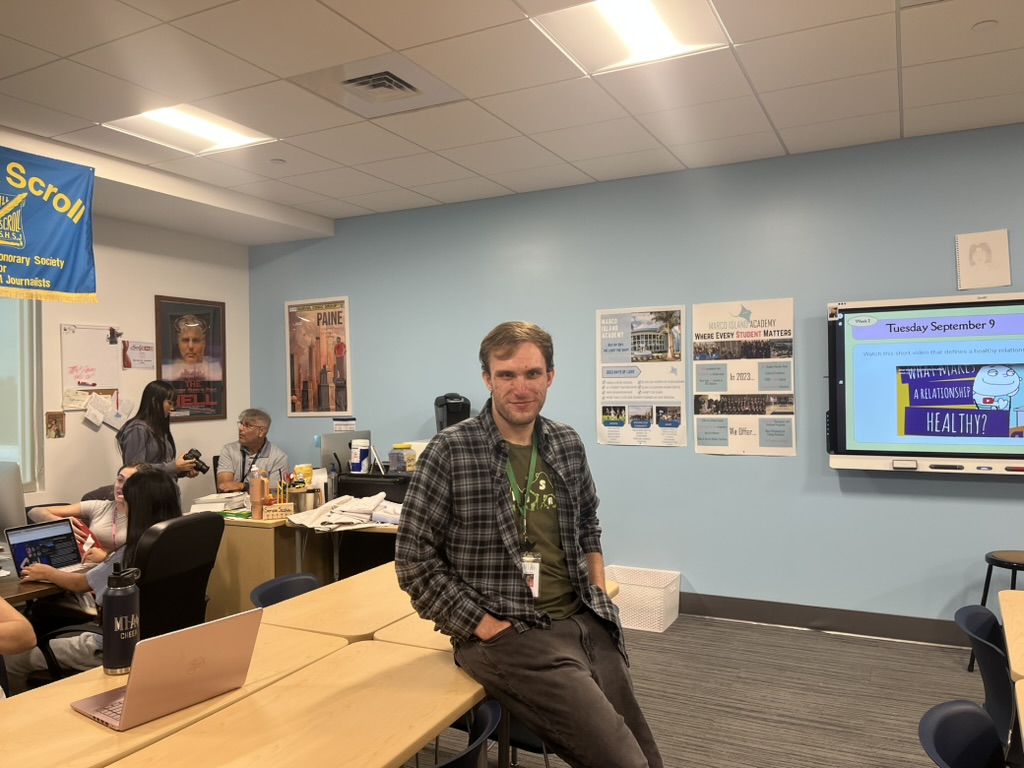Marco Island is one of the most popular and beloved tourist destinations in Florida, where vacationers see their problems melt away like the setting sun over the shining waters of the Gulf of Mexico. For snowbirds and year-round residents alike, it is a beautiful, bio-diverse island community that offers the illusion of a care-free life. For prospective residents and others in the know, however, the exorbitant housing prices create an impassable barrier preventing good citizens from ever engaging with the Marco community.
The cost of living is one of the largest conflicts for those residing in a tourist destination town as popular as Marco Island. Because of the constant increase in Marco’s appeal, housing prices have spiked over the years to levels that are unfathomable to most middle-class residents. According to Zillow, the average listing price for a home on Marco in 2023 was $1,027,500 USD, and the average sale price was $940,000 USD. Renting doesn’t provide a particularly affordable alternative either, as the average home renting price on Marco is 235% higher than the national average (varying between bedroom count, as seen in the chart below.)
This is a struggle shared among many, and has escalated into a large concern for residents who work on the island full-time. Kyle Ginther, a second-year teacher at Marco Island Academy, has recently begun to understand and experience the difficulties with housing on the island firsthand.
Ginther originally started at MIA as a student-teacher. During this time, Mr. Ginther was living with his family, so the struggles of finding housing had not settled in yet.

However, after his year in training, he was forced to move closer to his full-time job on the island. Luckily, he was able to find housing close to MIA, though being able to afford it was a different issue. “It is expensive, and I do have roommates, so splitting the cost like that is the only feasible way I would be able to live on Marco.” Despite this, Ginther considers himself to be one of the more fortunate residents within this crisis.
Randy Montgomery, a longtime teacher at Marco Island Academy and a father of students attending local schools, has also been affected by the issues with expensive housing on Marco. Roommates are not an option for Montgomery, as he lives with and provides for his family. Because of this, he, like many other teachers, is forced to work multiple jobs to be able to support his life on Marco.
“I take approved days off here to work my other job,” Montgomery stated. “I don’t get days off; that’s just not a possibility; teachers don’t get long holidays; teachers don’t get summers off; that’s just not true. We have to do a lot of work in that time to maintain our career, plus just to be able to afford it.”
He also shared his distaste for the overpriced housing on Marco Island. “There is no such thing as affordable housing in Collier County,” he stated. “All it takes is one increase in my rent, and I can’t be here anymore, so really, my biggest fear is not being able to afford it. He believes that “if we’re not waiting tables or working Saturdays and doing other things,” Marco housing might become too unaffordable for teachers like him.
Melissa Scott, the principal at Marco Island Academy, spoke on the issues that the school has had in finding new teachers in recent years, specifically at a recent recruitment fair for teachers.

“We went to a recruitment fair to get the vibe of what kind of teaching pool was going to be out there. People would see Marco Island right away and think, ‘I can’t afford to live there’ and that’s what stresses us out the most. From that fair, we didn’t get one applicant.”
She also touched on the reasons that housing on Marco Island is so expensive. “It’s not just housing; it’s also insurance, so say you can afford the home, condo, or apartment, but because Marco is a barrier island, insurance rates are insane, especially since the last hurricane. So we have faculty that drive 45 minutes to an hour to the school every day.”
These high expenses are an issue not just for prospective teachers, but an issue to all residents of the South Collier area, even to those who already own a home. It takes all types to build a welcoming community, and exorbitant prices have pushed out many essential workers looking to put down roots in Southwest Florida.
Principal Scott spoke on the issues that the members of the fire department on Marco Island have had with the commute. “Someone who’s a first responder would want to live [close to where they work], but people talk about teacher salaries; even first responder salaries in the one to two year range [aren’t much].” It’s important to have our first responders close to where they are working and they can’t do that if they’re having trouble affording housing as well.”

Brandon Swope, another MIA teacher who recently faced unexpected issues moving back to Marco Island, shared some insightful comments on that issue. “The idea is, if we can keep the prices higher, we can keep a better clientele, that’s the feeling that people have. But the reality is, in making it so expensive, you’re pushing out people who would be good teachers, neighbors, and community members solely because of the price.”
Collier County has recently decided to try to combat this crisis. In early October, CIG Communities broke ground on a 233-unit project, called Aspire Naples. This development focuses specifically on reducing housing costs for firefighters, police officers, teachers, government employees, service workers, nurses, and medical assistants.
For the northern section of Naples, it is a good step for affordable workforce housing. However, the placement of the housing in the most northern part of Collier County only offers real benefits to the northern part of Naples, and the benefits most likely won’t be seen in southern Naples or Marco Island.
The workforce housing crisis is one that is tricky to solve from an economic point of view. Living on an island with limited space, some degree of exclusivity is inherent to the area, which naturally drives up prices. However, leaving the housing market to grow unchecked following COVID, hurricanes, and numerous other economic factors is driving out prospective residents who are essential to fostering the Marco community we know and love. As the market goes up, Marco Island’s teachers, firefighters, service workers, and community members are being driven to move elsewhere. For the Southwest Florida area as a whole to continue being a fulfilling and social place to build a life, some solution must be found to introduce more affordable housing.











